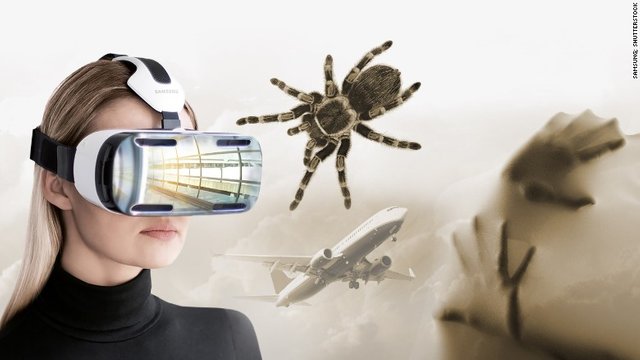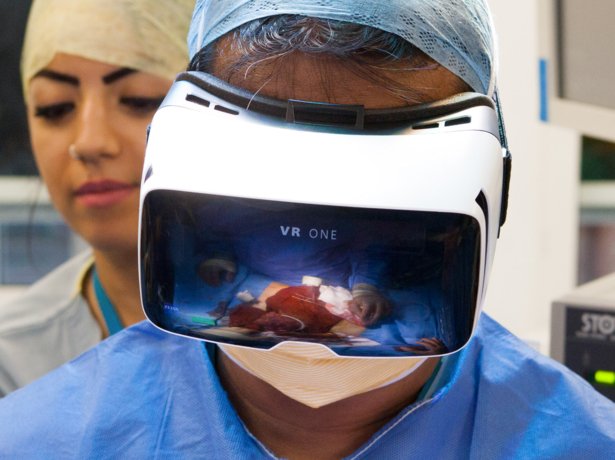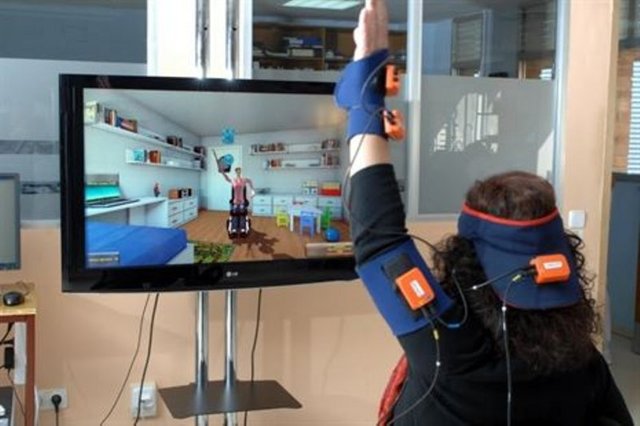Five Ways Virtual Reality Is Changing Healthcare For The Better

Virtual reality (VR) is much more than just a new form of entertainment; it is increasingly being used in a wide range of medical applications and treatments.
This article will give you an overview of this new exciting technology from a healthcare perspective.
1.Pain management
There is good scientific evidence that VR can help to relieve pain. The parts of the brain that are linked to pain are less active when a patient is immersed in virtual reality. In some instances, it can even help people tolerate medical procedures that are usually very painful.
Studies have shown that amputees can benefit from VR therapy. Amputees often feel severe pain in their missing limb, which can be hard to treat with conventional methods, and often doesn’t respond well to strong painkillers like codeine and morphine. However, a technique called “virtual mirror therapy”, which involves putting on a VR headset and controlling a virtual version of the absent limb seems to help some patients cope better with this “phantom pain”.
2.Physical therapy
VR can be used to track body movements, allowing patients to use the movements of their therapy exercises as interactions in a VR game.
It’s more fun doing exercises in virtual reality than it is in a gym, so people are more motivated to exercise. Studies also found that for patients who are anxious about walking, the VR game can control their virtual environment so that it looks as though they are moving much slower than they actually are. This has shown to reduce patients' pain and anxiety.
3.Fears and phobias

If you have an irrational fear of something, you might think the last thing you need is to see it in VR, however, this is one of most established forms of medical VR treatment. Phobias are often treated with something called graded-exposure therapy, where patients are slowly introduced to their fear by a therapist. VR is perfect for this as it can be adjusted precisely for the needs of each patient, and can be done in the doctor’s office or even at home. This is being used to treat phobias such as fear of heights and fear of spiders.
4.Cognitive rehabilitation
Patients with brain injury from trauma or illness, such as stroke, often struggle with the everyday tasks that we take for granted, such as shopping or making plans for the weekend. Recreating these tasks within virtual environments and allowing patients to practice them at increasing levels of complexity can speed up recovery and help patients regain a higher level of cognitive function.
Doctors can also use these same virtual environments as an assessment tool, observing patients carrying out a variety of real-world complex tasks and identifying areas of memory loss, reduced attention or difficulty with decision-making.
5.Training doctors and nurses

VR also offers benefits to healthcare professionals. Training doctors and nurses to carry out routine procedures is time consuming, and training generally needs to be delivered by a busy – and expensive – professional. But VR is increasingly being used to learn anatomy, practice operations and teach infection control.
Being immersed in a realistic simulation of a procedure and practicing the steps and techniques is far better training than watching a video, or even standing in a crowded room watching an expert.
6.What's ahead?
VR has already proven to be a very useful tool for healthcare services. The applications for VR are manifold and to date, we might just have grasped the tip of it. The shift to digital healthcare has just begun.
For further information:
http://psycnet.apa.org/journals/cns/3/3/199/
https://www.ncbi.nlm.nih.gov/pubmed/15167542
http://www.sciencedirect.com/science/article/pii/S1524904215000314
http://onlinelibrary.wiley.com/doi/10.1002/ejp.559/full
https://researchportal.port.ac.uk/portal/files/3362815/Virtual_reality_and_musculoskeletal_pain.pdf
https://link.springer.com/article/10.1007/s11920-017-0788-4
http://www.vrphobia.com/heights.htm
http://www.vrphobia.com/spiders.htm
http://content.iospress.com/articles/journal-of-alzheimers-disease/jad141260
http://www.iflscience.com/technology/five-ways-virtual-reality-is-improving-healthcare/all/
http://onlinelibrary.wiley.com/doi/10.1002/14651858.CD006575.pub3/pdf

True, good points!
Thanks - for more science/ healthcare/ investment content feel free to check out my other articles too.
best
Alex
Hey, great post! We have featured your article in our weekly newsletter! Keep up the good work, and let us know if you have any concerns.
Join us on the science-trail Discord
Thank you ! I am honored and I will join you with pleasure
Great, nice to learn about all these applications. I had heard only about using VR to treat patients with PTSD. Basically, you replay an incident similar to what the patient had, but then it ends differently. So the person learns that that kind of situation does not necessarily have to end traumatically, and their symptoms are relieved.
That is a real great application. I handled that in my article under: 3.Fears and phobias
Thanks for sharing :)
You are welcome ;)
Another point you didn't bring up where I think VR can be hugely useful is in data visualization. The ability represent scale so well and manipulate data in unique ways is really powerful. For healthcare this could be MRI's, XRays, Ultrasounds, etc.
Totally agree ! Do you have experience with it?